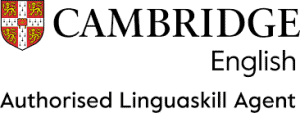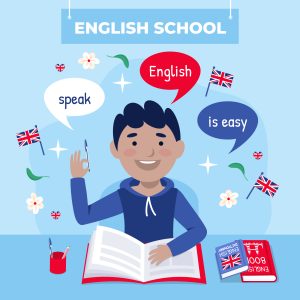Cambridge Linguaskill with English Mastery


IIT English Mastery – Lifelong Achievers in English language Proficiency
Become master in all four-communication aspects Achieve Lifelong qualification from Linguaskill Cambridge for a successful academic and professional journey.
Speaking | Listening | Reading | Writing

What do you know about IIT English Mastery?
This program allows you to achieve a globally recognized, lifelong Linguaskill qualification from Cambridge.
Unlock your potential with Linguaskill, the AI-powered online English test from Cambridge. Conveniently assess your language skills in speaking, writing, reading, and listening, and earn a globally recognized qualification.
How to start with IIT English Mastery?
- Students can join this program after completing their Ordinary Level (O/L) examinations.
- Entrance test
- IIT English Mastery is designed to prepare students for the Cambridge Linguaskill exam. Before enrolling, you must take the Certified English Proficiency Test (CEPT). This test will evaluate student’s level of English
Once you sit for entrance test It tests all four language skills – speaking, writing, reading and listening – in modules. Based on the result you can enter to relevant level to study and sit for lingua exam.
We provide extraordinary package
- CEPT exam to understand your current standard
- Study material (books and online study material access)
- Cambridge Lingua skill examination
- Computer and audio lab facility
3 months 8.30 AM to 1.30 PM

Dream Big you can be who you want
Choose the best pathway for your future with our IIT English Mastery. The best Lingua teachers in Sri Lanka going to make you masters
Why you need to take CEPT?
This is a General English test for an initial evaluation of the candidates’ language knowledge from A1 to C levels of the Common European Framework of Reference (CEFR).
The 30 minutes test is available online and is focusing on the skills of Reading, Use of English and Listening. CEPT is an adaptive test so based on the student’s responses, the test becomes progressively easier or more difficult until a consistent level of ability is achieved, and the student’s level of English can be identified. The score is based on a scale from 0 to 50 converted into CEFR levels.
What is CEFR?
The CEFR is an international standard for describing language ability. Based on CEPT marks student graded in to the relevent level.

Basic level (A1&A2)
Cambridge English Qualifications (Linguaskill) are in-depth exams that make learning English enjoyable, effective and rewarding. Our unique approach encourages continuous progression with a clear path to improving language skills. Each of our qualifications focuses on a level of the Common European Framework of Reference (CEFR), enabling learners to develop and build speaking, writing, reading and listening skills.
A1 Level
LISTENING AND SPEAKIN
- Understand basic spoken dialogues on familiar topics with the aid of pictures and comprehend simple spoken descriptions of people and objects.
- Express agreement or disagreement using short, simple phrases and respond to questions on familiar topics with straightforward sentences.
- Provide simple descriptions of objects, pictures, actions, habits, and preferences.
READING AND WRITING
- Recognize and comprehend simple signs, notices, and short factual texts with the help of pictures.
- Write short, simple phrases and sentences about pictures and familiar topics, including personal details, likes, and dislikes
A2 Level
LISTENING AND SPEAKIN
- Understand instructions given in multiple sentences and comprehend simple spoken descriptions of objects, people, and events.
- Follow simple conversations on everyday topics and ask basic questions related to daily life.
- Narrate short, simple stories using pictures or personal ideas, describe objects, pictures, and actions, and briefly talk about past activities.
B1 level
READING AND WRITING
- Understand routine information and articles, and write letters, emails, or notes on familiar and predictable topics related to personal experiences.
- Comprehend the general meaning of non-routine letters and theoretical articles within one’s work area.
- Demonstrate the ability to make reasonably accurate notes during meetings or seminars on familiar and predictable subjects.
- Take basic notes during lectures and understand most factual information within their area of study.
LISTENING AND SPEAKING
- Understand clear instructions or public announcements and express basic opinions on abstract or cultural topics in a limited manner.
- Identify the main topic of a TV news broadcast when accompanied by strong visual elements.
- In the workplace, follow a simple presentation or demonstration, and comprehend instructions on classes and assignments given by a teacher or lecturer.
- Participate in a seminar or tutorial using straightforward language.
B2 Level
READING AND WRITING
- Can scan texts to locate relevant information and take notes while listening or write letters and emails that include non-standard requests.
- Read media content quickly with good comprehension, express opinions, and provide reasons.
- Understand the general meaning of non-routine letters and emails, grasp most of their content, write simple factual reports, and begin to evaluate and offer advice.
- Make clear, concise notes useful for essays or revision, capturing the key points, and present arguments using a limited range of expressions.
LISTENING AND SPEAKING
- Can follow a talk on a familiar topic and engage in conversations on a wide range of subjects.
- Can ask for clarification and additional information and is likely to understand the response. Can maintain a conversation on various topics.
- Able to request information and comprehend the response. Can express personal opinions and present arguments to a limited extent.
- Can answer predictable or factual questions and confirm that all instructions are understood.
C1 Level
READING AND WRITING
- Reads quickly enough to manage an academic course and takes reasonably accurate notes in meetings or writes work that demonstrates effective communication skills.
- Understands complex opinions and arguments as expressed in reputable newspapers. Writes most letters likely to be required, with any errors not hindering the overall message.
- Comprehends the general meaning of more complex articles with minimal misunderstanding. Given sufficient time, writes a report that clearly communicates the intended message.
- Scans texts to extract relevant information and grasps the main topic. Produces written work where the message is clear and coherent throughout.
LISTENING AND SPEAKING
- Contribute effectively to meetings and seminars within their area of work or maintain a casual conversation with good fluency, handling abstract expressions.
- Engage in extended casual conversations and discuss abstract or cultural topics with fluency and a wide range of expression.
- Follow discussions and arguments with only occasional need for clarification, using effective compensation strategies to overcome any gaps in understanding.
- Follow up on questions by probing for more detail and make critical remarks or express disagreement without causing offense.
For inquiries please call : 0778715820




